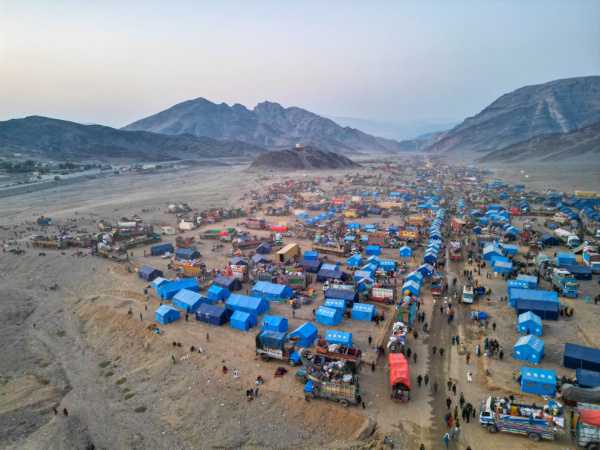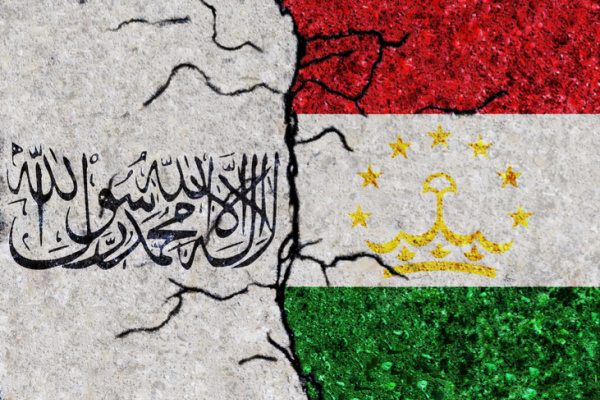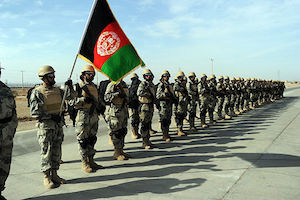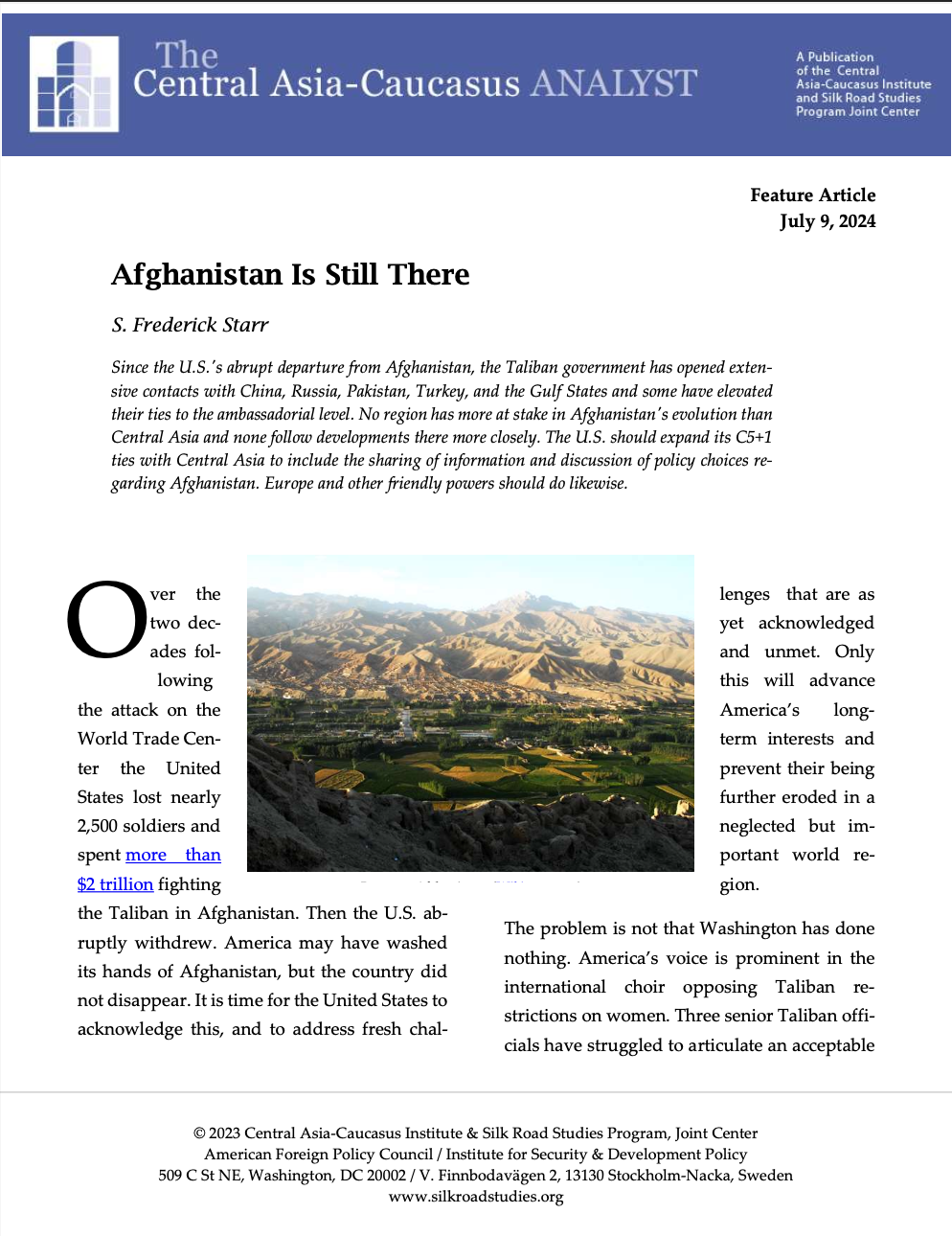Afghanistan Is Still There
S. Frederick Starr
July 12, 2024
Since the U.S.'s abrupt departure from Afghanistan, the Taliban government has opened exten- sive contacts with China, Russia, Pakistan, Turkey, and the Gulf States and some have elevated their ties to the ambassadorial level. No region has more at stake in Afghanistan's evolution than Central Asia and none follow developments there more closely. The U.S. should expand its C5+1 ties with Central Asia to include the sharing of information and discussion of policy choices re- garding Afghanistan. Europe and other friendly powers should do likewise.
Pakistan’s Eviction of Afghan Migrants Risks Backfiring
By Sudha Ramachandran
December 5, 2023
Pakistan has issued an ultimatum to illegal migrants to leave the country or face detention and deportation. It says that national security concerns underlie its decision; it alleged that Afghan migrants carried out most of the suicide attacks in Pakistan over the past year. However, its forcible deportation of migrants is unlikely to secure it from terror attacks as deportees could turn their anger against Pakistan. A rise in militant recruitment and attacks can be expected. Pakistan’s attempt to secure itself by driving out migrants will deepen its insecurity.

Tajikistan Faces Threat from Tajik Taliban
By Sudha Ramachandran
March 27, 2023
In July 2022, reports emerged of a “new” militant outfit in northern Afghanistan. A Taliban-affiliated group, the Tehrik-e-Taliban Tajikistan is reportedly in charge of the security of five districts in Afghanistan’s Badakhshan province. It has in its crosshairs the anti-Taliban resistance based in Tajikistan, the secular Tajik government and the Islamic State-Khorasan Province. So how “new” is the TTT? And what are the implications of its rising presence and profile in Afghanistan’s border districts for the region?

Are We Seeing the Beginning of ISIS-Taliban Collaboration in Afghanistan?
By Sudha Ramachandran
November 13, 2017, the CACI Analyst
The attack at Mirza Olang village in Sayad district of Afghanistan’s Sar-e Pul Province on August 5 is reported to have been a joint operation by the Taliban and the Islamic State of Khorasan Province (ISKP), the local branch of the terrorist organization known as the Islamic State of Iraq and Syria (ISIS) (Khorasan is an old name for the region that includes parts of present-day Afghanistan, Pakistan, Iran and Central Asia). If the Taliban and ISKP did indeed join forces to carry out the attack, this is bad news for the Afghan government and people. However, given the huge differences and tense relations between the two armed groups, cooperation, if any, is likely to be local, tactical and short-lived.

The battle for Kunduz and its repercussions
By Stephen Blank
October 22nd, 2015, The CACI Analyst
On October 13, 2015, the Taliban announced its withdrawal from the major Afghan city of Kunduz that it had captured earlier. A counterattack by the Afghan Army and the ISAF alliance’s air power reversed the Taliban’s earlier victory and forced them out of the city. Nevertheless, this battle cannot be considered a victory for the Afghan government or for ISAF, and its repercussions are wide-ranging. Almost immediately after the Taliban withdrawal, President Obama ended his long review of U.S. strategy and policy in Afghanistan by announcing that 5,500 U.S. forces would stay through 2017, i.e. into the next administration, to ensure the continuing stabilization of Afghanistan.




